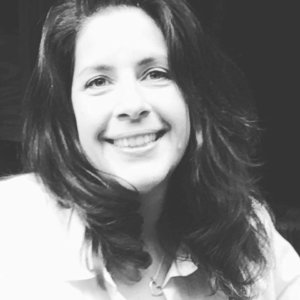Liberty and justice for all

As our children head back to school I am reminded of the most important lessons of my youth. I was born in the late 60s during the Vietnam War. I wouldn’t say my mom was a hippie of the time, but I do remember a flower or two in her hair on occasion. Peace, love and equality were prevalent themes in my home, at school, in my neighborhood and on television.
My mother always told me, “You’re no better than anyone and no one is better than you.” When I was little I wanted her to tell me I was special, better than everyone, but that seed of equality she planted in my developing brain has stuck with me to this day, and I can’t tell you how thankful I am for this gift.
Everything in my rural Vermont upbringing backed her up. I lived next to a dairy farm, a babbling brook and two lifetimes of trees to climb. We had only three television channels. I watched PBS after school in an era when Sesame Street was new, Mr. Rogers was all the rage and every nighttime sitcom had a moral lesson to teach.
I was an only child until the age of 19, so I had plenty of unhindered time to reflect on the natural world around me. I was an early reader and writer. I’ve never been much of a speaker, not even at the dinner table, and certainly not in the classroom. The radio was on quite a bit. The songs of that time were all about peace. We were asked to “give it a chance” and for every season “turn, turn, turn.” The messages were pure. The distractions were few. Modern technology as we know it was still in its pupal stage.
I am a generation Xer—someone born between the mid-60s and early 80s. I read somewhere we are known to be “active, happy achievers.” Apparently we were the first generation to grow up with both parents working. In other words, we were left to our own devices … without devices.
I was 14 years old when my history teacher introduced me to the book Treblinka about the horrors of Nazi Germany in Poland during WWII. It was a far cry from my beloved Heidi and The Outsiders I had read and re-read just prior. At the time, I was actually angrier that I hadn’t been informed this kind of evil existed … that Hitler existed. I wanted to know why and how he was able to torture and kill so many innocent people so easily and effortlessly. I felt betrayed. I wanted answers. I finally got vocal.
I paid attention in school and to the news like mad after learning about the Holocaust. I didn’t want to be left in the dark ever again. I had no idea how I hadn’t been introduced to The Diary of Anne Frank before then. And I had no idea why everyone wasn’t shouting what the Nazis had done from every rooftop. Why was everyone so tight-lipped about the Holocaust, I wondered. Why was everyone keeping it all under wraps? I talked nonstop about what I had learned. Time and time again the adults in my life would pat me on the head and say something like, “We can’t live in the past, Lynnie. It will never happen again.”
I believed them and followed protocol. I stopped talking and went back to observing. Not long after that I remember I photographed natural items placed on a rock to form the word “love.” As my bright, flower-laden creation revealed itself in the darkroom at school my teacher scoffed and said, “Love is overrated.”
He seemed so lost and hopeless, and I desperately wanted to know what the world had done to him. I never found out, but his unrest was my cue. I knew I didn’t have the luxury of letting myself remain complacent and quiet. I felt validated in my belief that the work I put into my everyday living was not just for me—it was about making the world a better place for everyone.
All corners of my environment indicated peace, love and equality were the most important lessons to learn as I grew. When I placed my hand over my heart before school began and repeated the words, “I pledge allegiance to the flag of the United States of America, and to the republic for which it stands, one nation under God, indivisible, with liberty and justice for all,” it instilled in me a responsibility to be a helping part of a whole. I understood then, as I do now, that justice for all is a work in progress. I am pretty certain it always will be.

